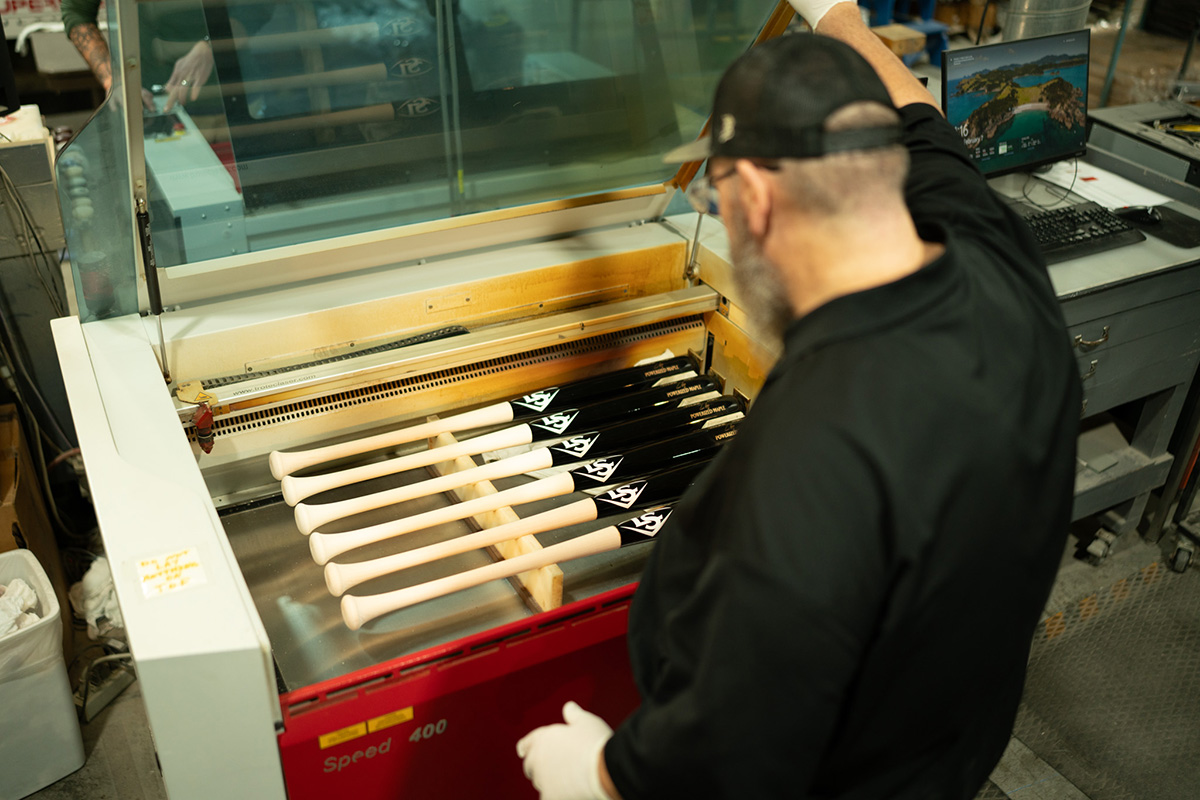Personality
Meet the Pennsylvania timber mills behind Louisville Slugger
Lumber mills in Galeton and Akeley fuel the iconic baseball brand.

A kiln used in the wood drying process at the Larimer & Norton bat mill in Akeley, PA. // Bundles of wood billets at the Larimer & Norton bat mill in Akeley, PA. Photos by Lisa Card/Warren County Visitors Bureau
While Major League Baseball’s Opening Day may have taken place halfway across the globe in the Tokyo Dome, that game – and virtually every other this season – will have a distinctly Pennsylvania flavor, thanks to the Northern Pennsylvania towns of Galeton and Akeley.
The white ash and hard maple tree forest in Warren County and along the Pennsylvania-New York border is home to Larimer & Norton, the wood supplier for the Louisville Slugger bats used by players from Little League to the big leagues.
Referred to by locals as the “bat factory,” Larimer & Norton’s trees and timber mills are where the No. 1 supplier of MLB bats begins their process.
But before they become bats – less than 5% of which end up pro-grade and game-ready – the wood must make the cut for the majors. A single tree, which grows for 60 years, can produce up to 40 bats. Only a handful of bats – ones cut from the center of the tree, where the rings are the tightest and hardest – will be graded high enough for this. The wood is cut into 40-inch cylinder-shaped pieces of wood known as billets and is then graded before being shaped and dried.

Pete Eckman, sawmill manager at Larimer & Norton, said the bats not deemed major league-worthy still have a life of their own as retail bats sold at sporting goods stores. He said that after going through a roughly month-long drying process in a kiln, the bats are brought out and shaped again before facing the closer: “Then we send them off to Louisville.”
Eckman said the 10-person team at the company mill, and many in the small surrounding community, are proud of how much – and for how long – the Pennsylvania-based bat factory has contributed to the game of baseball.
“Some of the older guys here at the mill, we take pride in it,” Eckman told City & State. “I like to watch a ballgame and look for the ‘Louisville’ bat, and if a guy hits a home run (I think), ‘That’s one of our bats.”’
